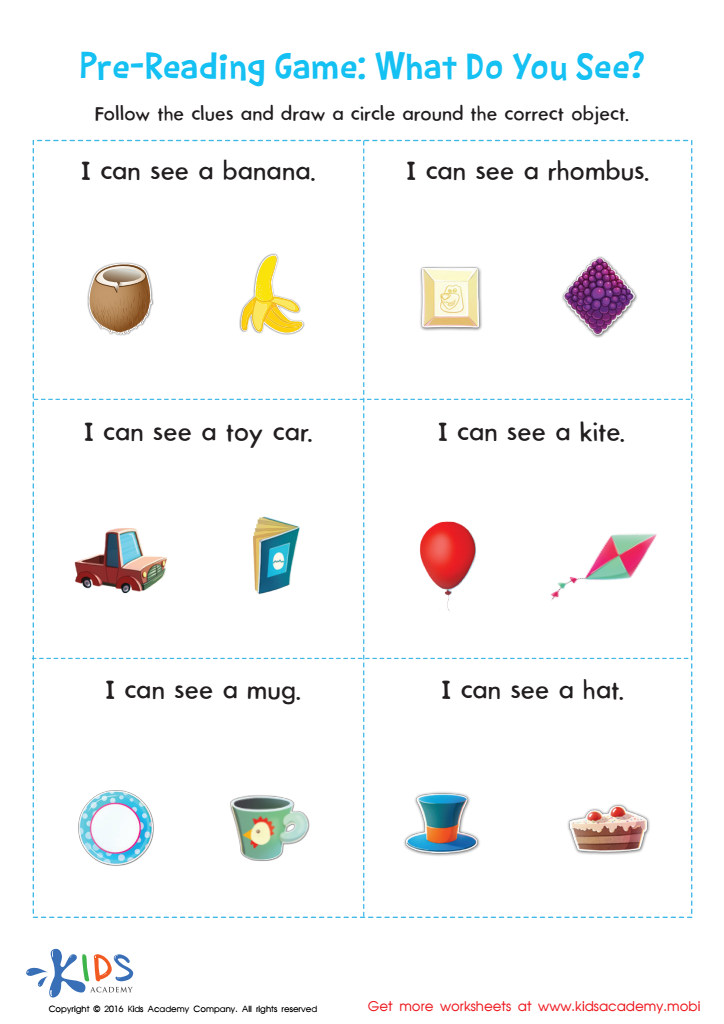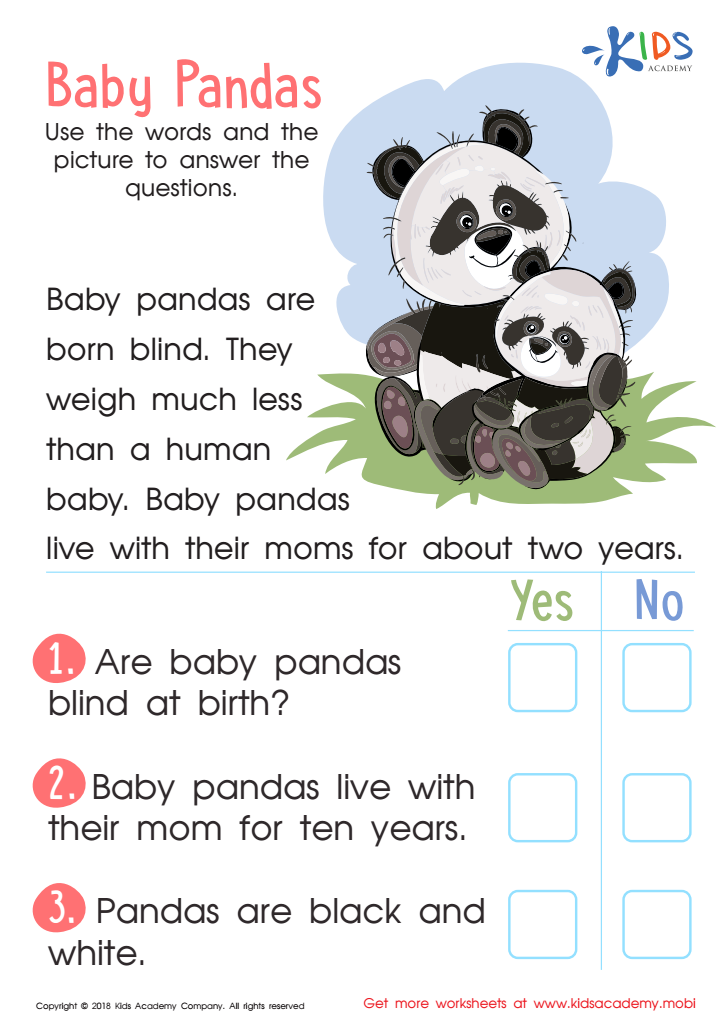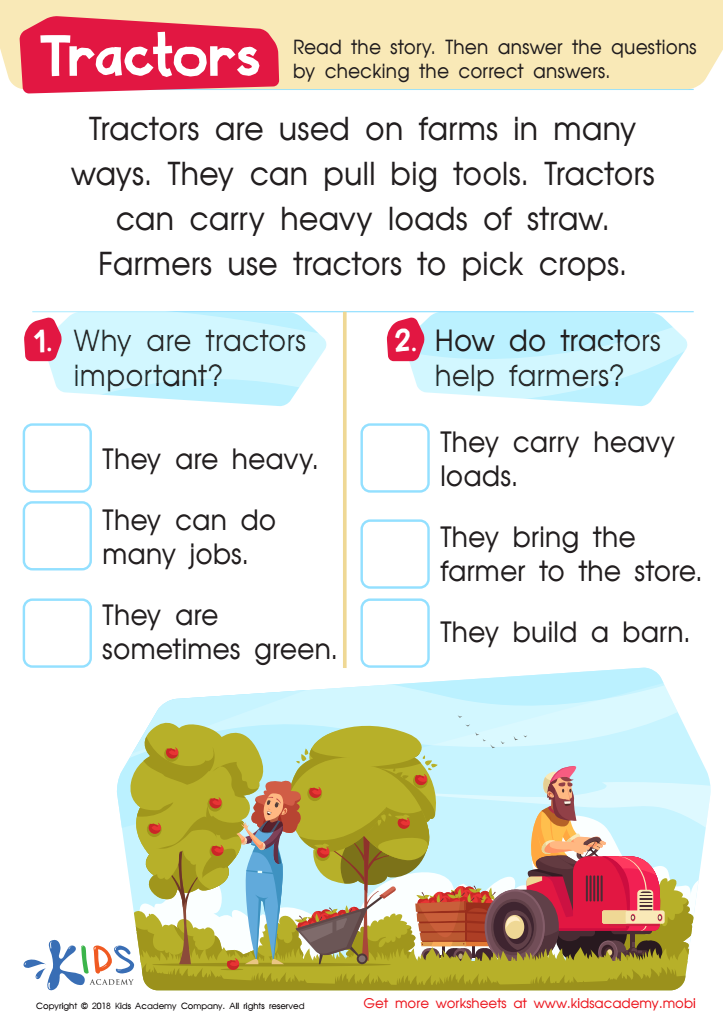Color recognition Reading Non-Fiction Worksheets for Ages 3-9
3 filtered results
-
From - To
Discover our engaging "Color Recognition Reading Non-Fiction Worksheets" designed for children ages 3-9! These interactive worksheets enhance young learners’ ability to identify and differentiate colors while exploring fascinating non-fiction topics. Each activity is crafted to promote critical thinking, enhance vocabulary, and stimulate curiosity in a fun, vibrant way. Ideal for parents and educators, these resources are perfect for home or classroom settings. Watch as your child develops their reading skills alongside their understanding of the world around them. Join us in making learning dynamic and enjoyable with our color recognition worksheets that bring education to life!


Pre–reading Worksheet: What Do You See?


Baby Pandas Worksheet


Tractors Worksheet
Color recognition is a foundational skill crucial for early childhood development, particularly in reading non-fiction for ages 3-9. Understanding colors not only enhances a child's observational skills but also plays a vital role in their ability to comprehend and engage with the world around them. Non-fiction texts often use color to convey information—whether through imagery, charts, or thematic elements—making color recognition essential for effective learning.
Parents and teachers should highlight color recognition, as it promotes cognitive skills, such as categorization and differentiation. When children can identify colors, they can better grasp descriptions and visuals in non-fiction literature, leading to improved comprehension and retention of information. Engaging with colorful books stimulates curiosity and invites discussion about real-world concepts, sparking a child’s interest in exploring broader themes.
Furthermore, fostering color awareness can bolster creative expression and communication. Understanding color helps children articulate their thoughts and experiences more vividly, leading to deeper conversations. By introducing and reinforcing color recognition in the context of non-fiction reading, educators and parents cultivate an enriched learning environment that encourages exploration, critical thinking, and a lifelong love of knowledge. This holistic approach ultimately prepares young learners for future academic success.
 Assign to My Students
Assign to My Students
















